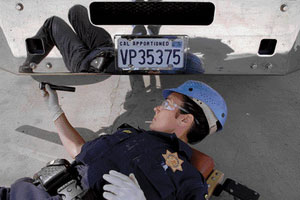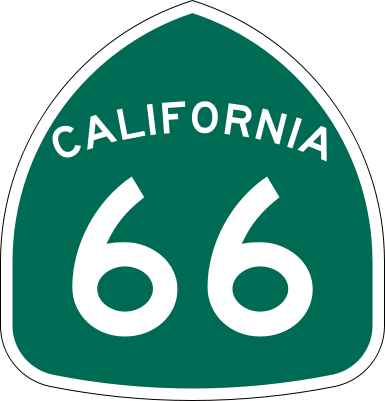Vehicle Inspections
We provide complete inspections of trucks and trailers to comply with all state and federal laws. We will record our inspection on our form or your company’s and will forward it directly to your terminal if you desire.
Avoid costly fines and down time by complying with current and new guidelines. California established a new program to replace the current B.I.T. program. Fees will be collected differently and inspection intervals have changed. You can read about the new regulations by clicking on the button provided.
Avoid Problems

D.O.T. Inspections
B.I.T Inspections
FMCSA Regulation 396.17: Periodic inspection
(a) Every commercial motor vehicle must be inspected as required by this section. The inspection must include, at a minimum, the parts and accessories set forth in appendix G of this subchapter. The term commercial motor vehicle includes each vehicle in a combination vehicle. For example, for a tractor semitrailer, full trailer combination, the tractor, semitrailer, and the full trailer (including the converter dolly if so equipped) must each be inspected.
(b) Except as provided in § 396.23 and this paragraph, motor carriers must inspect or cause to be inspected all motor vehicles subject to their control. Intermodal equipment providers must inspect or cause to be inspected intermodal equipment that is interchanged or intended for interchange to motor carriers in intermodal transportation.
(c) A motor carrier must not use a commercial motor vehicle, and an intermodal equipment provider must not tender equipment to a motor carrier for interchange, unless each component identified in appendix G of this subchapter has passed an inspection in accordance with the terms of this section at least once during the preceding 12 months and documentation of such inspection is on the vehicle. The documentation may be:
(1) The inspection report prepared in accordance with § 396.21(a), or
(2) Other forms of documentation, based on the inspection report (e.g., sticker or decal), which contains the following information:
(i) The date of inspection;
(ii) Name and address of the motor carrier, intermodal equipment provider, or other entity where the inspection report is maintained;
(iii) Information uniquely identifying the vehicle inspected if not clearly marked on the motor vehicle; and
(iv) A certification that the vehicle has passed an inspection in accordance with § 396.17.
(d) A motor carrier may perform the required annual inspection for vehicles under the carrier’s control which are not subject to an inspection under § 396.23(b)(1). An intermodal equipment provider may perform the required annual inspection for intermodal equipment interchanged or intended for interchange to motor carriers that are not subject to an inspection under § 396.23(b)(1).
(e) In lieu of the self-inspection provided for in paragraph (d) of this section, a motor carrier or intermodal equipment provider responsible for the inspection may choose to have a commercial garage, fleet leasing company, truck stop, or other similar commercial business perform the inspection as its agent, provided that business operates and maintains facilities appropriate for commercial vehicle inspections and it employs qualified inspectors, as required by § 396.19.
(f) Vehicles passing roadside or periodic inspections performed under the auspices of any State government or equivalent jurisdiction or the FMCSA, meeting the minimum standards contained in appendix G of this subchapter, will be considered to have met the requirements of an annual inspection for a period of 12 months commencing from the last day of the month in which the inspection was performed. If a vehicle is subject to a mandatory State inspection program, as provided in § 396.23(b)(1), a roadside inspection may only be considered equivalent if it complies with the requirements of that program.
(g) It is the responsibility of the motor carrier or intermodal equipment provider to ensure that all parts and accessories on commercial motor vehicles intended for use in interstate commerce for which they are responsible are maintained at, or promptly repaired to, the minimum standards set forth in appendix G to this subchapter.
(h) Failure to perform properly the annual inspection required by this section shall cause the motor carrier or intermodal equipment provider to be subject to the penalty provisions of 49 U.S.C. 521(b).

